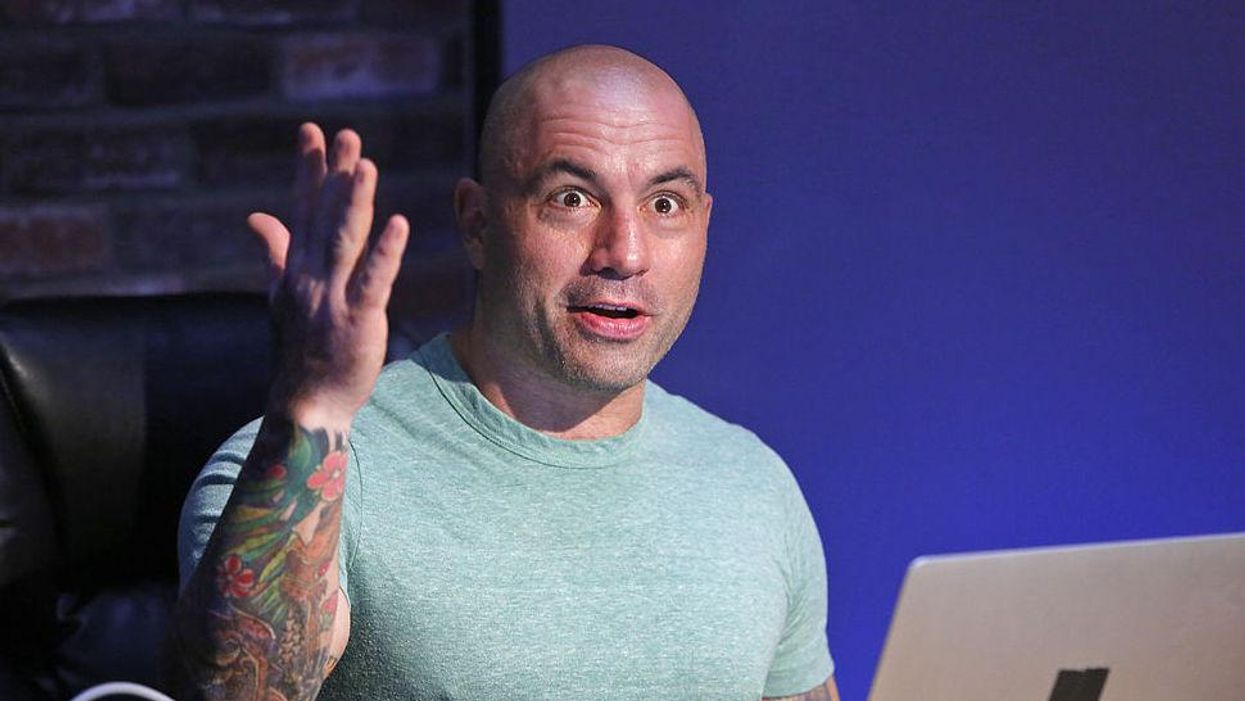
Vivian Zink/Syfy/NBCU Photo Bank/NBCUniversal via Getty Images

The media last week widely circulated an open letter to Spotify allegedly co-signed by “270 doctors” that demanded the company take action against podcast host Joe Rogan.
But it turns out the majority of those signatories cannot legally practice medicine on their own.
The letter demanded that Spotify "implement a misinformation policy."
The letter voiced anger over a recent episode of the "Joe Rogan Experience" with Dr. Robert Malone, a virologist and immunologist who has been censored by social media companies for disseminating a perspective about the COVID-19 vaccine that contradicts the government's narrative.
The letter claimed Rogan has a "concerning history of broadcasting misinformation" about the COVID-19 pandemic.
"Throughout the COVID-19 pandemic, Joe Rogan has repeatedly spread misleading and false claims on his podcast, provoking distrust in science and medicine," the letter stated. "This is not only a scientific or medical concern; it is a sociological issue of devastating proportions and Spotify is responsible for allowing this activity to thrive on its platform."
The media predictably circulated the letter like wildfire.
A quick inspection of the letter's signatories reveals that the majority are not legally permitted to practice medicine unsupervised, while a significant number are not even direct medical providers.
The range of credentials among the signatories includes: 82 medical doctors (MD), five doctors of osteopathic medicine (DO), more than one dozen nurse practitioners, nearly 100 Ph.D.s and Ph.D. candidates (most of whom are professors), registered nurses, veterinarians, a dentist, a psychologist (which is different from a psychiatrist, which requires an MD), physicians' assistants, a biochemist, master's students, research associates, pharmacists, a "COVID-19 laboratory supervisor," medical students, public health advisers, teachers, engineers, social workers, and even a podcast host.
In other words, the list is composed of an eclectic group of people — some of whom are qualified medical experts having earned the terminal degree in their field — that hardly inspires confidence in the newsworthy value of their letter, let alone in the weight of their collective opinion.
After all, what generally qualifies a person to contribute any substantive perspective to a given field of research is by earning the highest degree necessary in that field and by having direct experience in the field. For medicine in the United States, this is most often the MD or DO, considering one of these degrees is required to obtain a license to practice medicine without supervision.
This is what makes the letter — and the censorship of Dr. Malone — even more astounding.
Whether or not someone agrees with Dr. Malone, by academic and professional standards, he has earned the right to have a "seat at the table." He is a medical doctor and possesses decades of experience in virology and immunology.
Rather than seeking to silence voices that contradict the narrative, all views should be weighed equally and then only discounted if they are examined fairly with a methodology appropriate to the field (this is why, for example, academic journals typically employ a blind peer-review process). After all, scholars and experts who are members of professional societies routinely gather in meetings to share new ideas. Some are accepted, others are rejected, but all are allotted the opportunity to be heard if they are within the bounds of the field.
One thus wonders: Should people not qualified to examine the views of a bona fine expert be allowed to make judgements about the expert's opinions? That is what has happened with Dr. Malone and others like him.
(H/T: The Dossier)